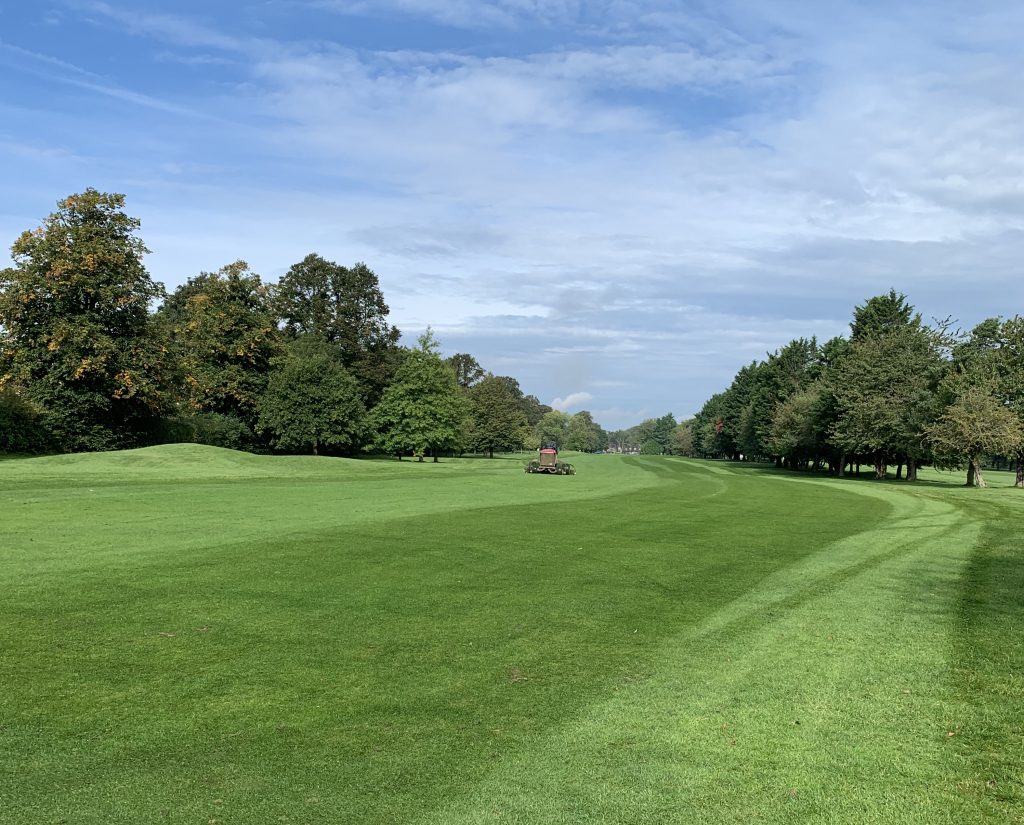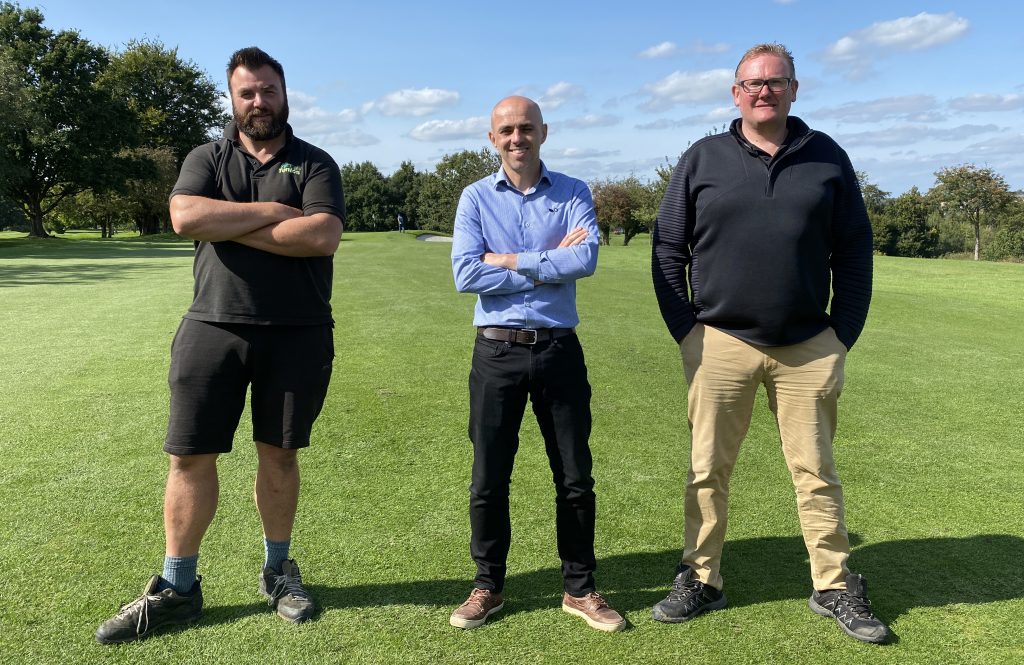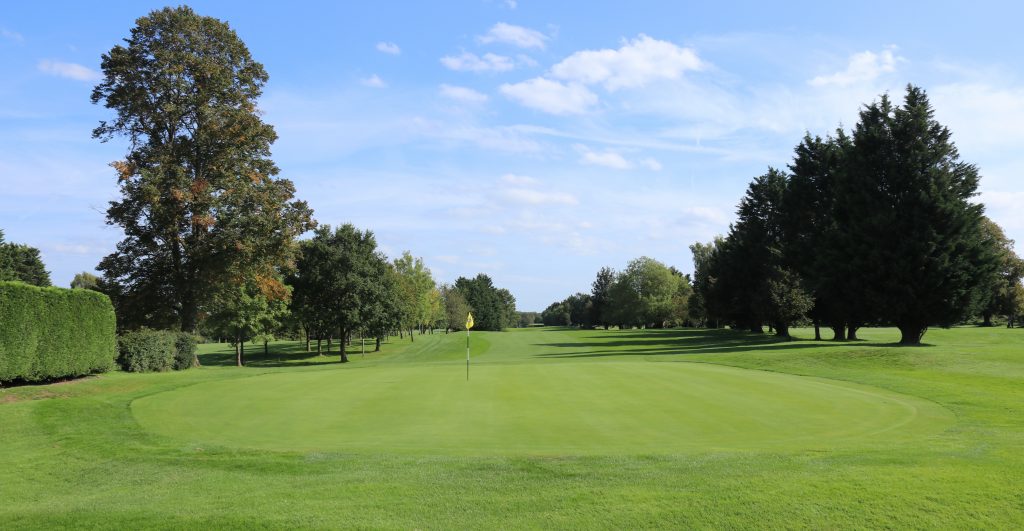How Flackwell Heath transformed the fairways
Related Articles
The decision to switch from its own in-house greenkeeping team to an external sports turf maintenance contractor has transformed the fairways at Flackwell Heath Golf Club.
Professional sports turf contracting company, Turf Tonics, was established in June 2014 by lifelong professional greenkeepers, Steve Gardner and Colin Wilson. Initially specialising in the maintenance and renovation of sports pitches such as Wycombe Wanderers’ Adams Park Stadium and Aldershot Town’s EBB Stadium, the company has recently been appointed as the external greenkeeping contractor at Flackwell Heath Golf Club near High Wycombe.
“We’re geared up to provide the full spectrum of professional turf services, from full pitch or course renovations, all the way through to the day-to-day maintenance of all sports and golf facilities,” explains Steve Gardner. “At Flackwell Heath we look after everything outside the clubhouse including seeding, deep aeration, mowing and general upkeep of the club’s 6,142 yards, par 71 golf course.”

To preserve soil moisture during drier periods, a root pruning blade has been used to a depth of 10 inches to reduce the amount of moisture taken by the trees which line the fairways.
Turf Tonics took over the greenkeeping duties at Flackwell Heath in June 2019 after the club recognised the need to improve the course.
“The club’s primary motive was to improve the year-round playability of the course’s wetter fairways which regularly had to be closed during periods of inclement weather due to waterlogging and excessively muddy conditions caused by worm damage,” Colin Wilson describes.
It took 12 months of hard work to improve the worst affected fairways, but Steve and Colin believe the results speak for themselves: “We started by introducing a fairly aggressive programme of raking to remove as much excess thatch as possible from the worst affected fairways,” Steve describes. “We then overseeded with Germinal’s A5 seed mixture (a 50:50 blend of Escapade perennial ryegrass and Cabrio ultrafine perennial ryegrass) to give the fairways a renewed vigour.
“To the untrained eye Escapade and Cabrio give a similar appearance to a fescue, but, because they don’t develop such a pronounced crown or thick stem, they look much better than comparable ryegrasses grown to a typical fairway height.”
A total of 70g/m2 of seed was sown at the equivalent of seven passes over the initial 12 month period: “We over-seeded approximately 10ha of fairways in spring 2019, making three passes with a Vredo 214 Compact seeder which placed the seed at 70mm spacings,” Colin explains. “The following autumn we over-seeded again using a Vredo 216 SuperCompact seeder at 35mm spacings in two directions which effectively achieved the same as making four passes with the wider machine. On both occasions new seedlings emerged within just four days and the fairways were already looking much better. By the start of the following summer we’d successfully kept all 18 holes open despite that winter’s excessively wet weather and we’ve regularly received positive feedback from players who’ve commented that the course not only looks better but also plays better.”

Colin Wilson (left) and Steve Gardner (right) of Turf Tonics with Germinal’s Sandy Pentecost at Flackwell Heath Golf Club.
To complement the ryegrass overseeding programme, Steve and Colin have also focused on the course’s nutrient requirements: “As well as removing as much thatch as possible to enable good seed-to-soil contact, we’ve also ensured the new seedlings have received the necessary nutrients to keep them healthy throughout the year. We’ll typically apply an organic form of nitrogen at a rate of 200kg/ha/year to maintain a healthy rate of grass growth and to inhibit Red Thread, but we’re also using a molasses based liquid fertiliser during the growing-in period and spring to improve plant virility during the colder months when the health of the plants is more important than outright rates of growth.”
In addition to aggressive thatch removal and providing the right nutrients, Steve Gardner also advocates overseeding during the autumn: “Effective thatch removal really is the key to successful overseeding – after all, you’ve got to break a few eggs to make an omelette, and in the case of fairway management, you’ve got to accept that the course won’t look its best for a few days after you’ve over-seeded. But that’s a small price to pay for the long-term benefits.
“The best advice is therefore to rake, rake and rake again to ensure enough thatch has been removed to expose the soil for the new seed to sit in. Beyond that it’s all a matter of timing: in my opinion the autumn is definitely the best time to overseed as you’re more likely to see the requisite amount of rain in the autumn and soil temperatures will still be high enough to enable good levels of germination. Seeding in the autumn also gives the new grass plants a chance to establish healthily before the onset of the busy spring and summer playing periods.

Prior to being renovated by Turf Tonics, some of the fairways at Flackwell Heath struggled with waterlogging which, in the worst cases, caused hole closures.
“Drilling in several directions is also critical as this allows plants to spread and proliferate properly,” Steve concludes. “If you only apply seed in one or two directions, you’re essentially putting plants in individual pots which won’t create the sward density or uniformity needed for good ball control and you’ll be back to square one.
“The improvements we’ve made at Flackwell Heath show what can be achieved with the right equipment, expertise and dedication: instead of becoming waterlogged and unplayable when the weather turns wet, the club’s fairways are something Colin and I and the rest of the team at Flackwell Heath are rightly proud of.”
For more information, visit germinalamenity.com

























